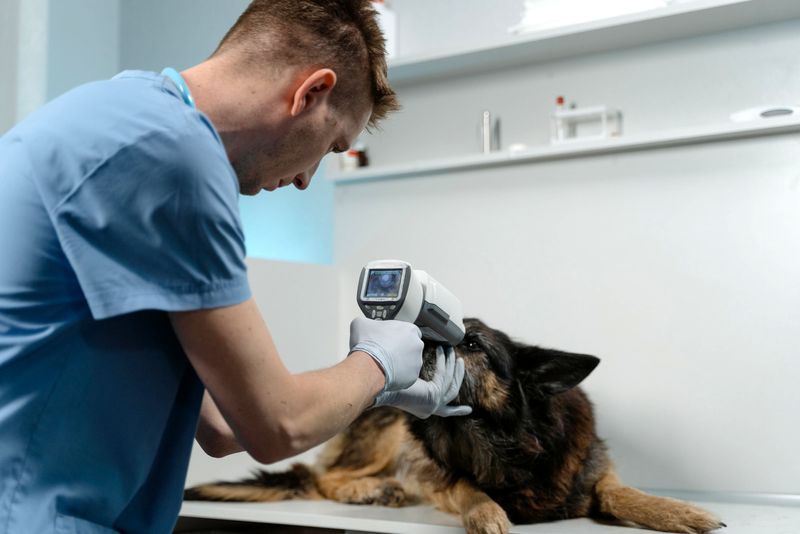What virus kills dogs?

Each year, thousands of dogs fall victim to a highly contagious and potentially lethal virus known as Canine Parvovirus (CPV). This deadly disease is often referred to simply as "parvo" or "parvo virus," and it poses a significant threat to the health and well-being of canines across the United States. With an estimated mortality rate of up to 91% in untreated puppies, CPV has become one of the most serious viral diseases affecting dogs today.
Understanding Canine Parvovirus (CPV)
Canine Parvovirus is a severe and highly contagious virus that primarily affects dogs. It can cause significant illness, leading to dehydration, organ failure, and even death if left untreated. The virus targets rapidly dividing cells in the body, making it particularly dangerous for young puppies whose immune systems are not yet fully developed.
Transmission of CPV
The primary mode of transmission for Canine Parvovirus is through direct or indirect contact with infected feces. This means that dogs can contract the virus by coming into contact with contaminated surfaces, such as soil, grass, and objects like food bowls, toys, and bedding. The virus is highly resistant to environmental conditions and can survive for months outside a host.
Risk Factors
- Age: Puppies between the ages of six weeks and six months are at highest risk due to their underdeveloped immune systems.
- Vaccination Status: Dogs that have not been vaccinated or whose vaccinations are out of date are more susceptible to CPV infection.
Symptoms of Canine Parvovirus Infection
The symptoms of CPV can vary but typically include the following:
- Vomiting and Diarrhea: These are often severe, with diarrhea frequently containing blood.
- Lethargy: Infected dogs may appear weak and listless.
- Loss of Appetite: Dogs suffering from CPV often lose their appetite completely.
- Dehydration: Due to the severe vomiting and diarrhea, dehydration is a common complication.
Treatment Options for CPV Infection
If your dog shows signs of parvo virus infection, it's crucial to seek veterinary care immediately. Treatment typically involves supportive measures such as intravenous fluids to combat dehydration, antibiotics to prevent secondary infections, and medications to control vomiting and diarrhea.
Hospitalization Requirements
In many cases, hospitalization is necessary for proper monitoring and treatment of CPV-infected dogs. Hospitalized dogs receive round-the-clock care from trained veterinary staff who can manage their condition effectively.
Prevention Strategies Against Canine Parvovirus
The best way to protect your dog from CPV is through vaccination. Puppies should begin receiving parvo virus vaccinations at around six weeks of age, followed by booster shots every three to four weeks until they are 16-20 weeks old. Adult dogs also need regular boosters according to their vet’s recommendations.
Hygiene Practices
In addition to vaccination, practicing good hygiene is essential in preventing the spread of CPV:
- Clean Up Feces Promptly: Dispose of dog feces immediately and properly to reduce environmental contamination.
- Sanitize Surfaces: Regularly clean and disinfect areas where dogs spend time, including food bowls, toys, and bedding.
Coping with CPV Infection: A Case Study Approach
A recent case study highlights the importance of early intervention in managing parvo virus infections. In this scenario, a six-month-old puppy presented severe symptoms of vomiting, bloody diarrhea, lethargy, and dehydration. Upon diagnosis, immediate hospitalization was recommended along with intensive supportive care.
Outcome and Lessons Learned
The puppy responded well to treatment and made a full recovery within two weeks. This case underscores the critical role that timely veterinary intervention plays in treating CPV-infected dogs effectively.
Conclusion: Protecting Your Dog from Canine Parvovirus
Canine Parvovirus is a serious threat to canine health, capable of causing severe illness and death. By ensuring your dog receives regular vaccinations and practicing good hygiene, you can significantly reduce the risk of CPV infection. If your dog exhibits symptoms suggestive of parvo virus disease, prompt veterinary care is essential for the best possible outcome.
